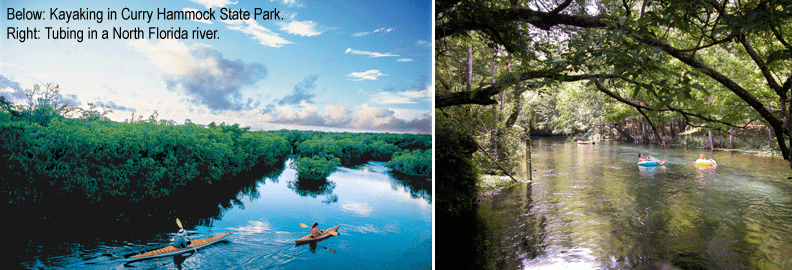| A look at the economic impact of agriculture and nature-based tourism |
FLORIDA IS WELL KNOWN as a recreation and tourism leader. With its dynamic entertainment industry, beautiful coastline, and favorable climate, one could be forgiven to overlook the many contributions of an uncharacteristic recreation powerhouse, namely Florida’s nature-based tourism. There’s a lot to say about the status of nature-based tourism in Florida, from its multimillion-dollar economic impact to its contribution in raising awareness about the state’s valuable and diverse agricultural and natural resources.
University of Florida IFAS Professor Taylor Stein has studied the promise and potential of Florida’s agritourism as well as nature-based tourism, and he encourages individuals and communities to consider the opportunities that exist for developing new businesses and enhancing existing operations. “Ecotourism is more than just economics. It’s about sustaining livelihoods, communities, and environments — including rural lands,” Stein writes. “It places a value on aesthetics and nature, which ordinarily do not have an explicit economic value.”
The numbers tell an interesting story. The Florida fishing, hunting, and nature adventure market generates billions for Florida’s economy. The Florida State Park Service reports that for every 1,000 people visiting a state park, the total direct impact on the local community is more than $42,000. In 2010, state parks generated $970 million for local economies throughout the state. If a park is closed for a year, it would result in an average loss of $6 million to local economies.
Another growing trend is agritourism. Farm tourism is rapidly being seen as a potential cash crop for Florida farmers. While it can provide another source of income for Florida farmers, it also can raise much-needed awareness about agriculture and its role to generations of Florida residents with little idea of how their food and dairy products are produced. UF/IFAS Extension agents have assisted farmers in creating successful business plans that identify a market for farm tours, corn mazes, hunting, and wildlife viewing. Ag recreation businesses require knowledge of legal issues and have new liability concerns. Managing visitors so that there is limited damage to property and interruption of core growing operations are important aspects of starting an operation.
At the UF/IFAS School of Forest Resources and Conservation (SFRC), researchers are working on ways to conserve Florida’s forests and maximize their economic value. Looking to nature-based tourism as an economic engine for rural communities is viable. But developing recreation enterprises doesn’t just happen – it takes thoughtful planning and involves a number of stakeholders. As SFRC Professor Stein advises, “Trying to balance the public’s enjoyment of natural resources along with the conservation of those resources can be a difficult task, but finding the balance is not impossible.” With planning and education, land managers can create recreation opportunities that actually can benefit ecosystems, protecting our natural resources for generations to come.
CREDIT
story by JACK PAYNE
Jack Payne is Senior Vice President for Agriculture and Natural Resources with the University of Florida Institute of Food and Agricultural Services (UF/IFAS).

